Ukraine: 1,300 animals saved from agonizing death in higher education
Four new successes of our Eastern Europe project 'Saving Animals with Computers'
While Russian bombs fall daily in Ukraine, universities in the country are sending out a powerful message: life—and science—goes on, with greater ethics and humanity. The desire to leave behind the cruel animal experiments of Soviet times remains unbroken among many lecturers. In just the first half of 2025, we were able to equip four more departments with modern, animal-free teaching technology. As a result, more than 1,300 animals are spared a pointless death in student training. All projects were carried out in close cooperation with the International Network for Humane Education, InterNICHE.
A project with impact
Since 2008, our Eastern Europe project 'Saving Animals with Computers' has been running. The principle is simple—and highly effective: we provide laptops, projectors, and specialized simulation programs. In return, heads of departments commit to end all harmful animal use in the respective course by signing an agreement. To support the transition, we funded the development of Russian- and Ukrainian-language teaching films and computer simulations tailored precisely to the curricula needs of the target countries.
The results speak for themselves: 80 departments in 31 cities—mostly in Ukraine, but also in Bulgaria, Bosnia and Herzegovina, Kyrgyzstan, Russia, Belarus, and Uzbekistan—now take part. This spares around 60,000 animals every year.
Four new departments end animal experiments
The first success this year came from the Department of Ichthyology and Zoology at the Bila Tserkva National Agrarian University. The previous curriculum included anatomical studies of various fish and frog organs. For this purpose, about 300 fish and 40 frogs were killed annually. That practice has now come to an end. Head of Department Prof Nataliia Hrynyevych emphasizes: “The implementation of suitable animal-free teaching methods not only saves animal lives but also improves the quality of education through the use of modern technologies.”
At L’viv University of Veterinary Medicine even two of its departments are switching to humane teaching. At the Department of Normal and Pathological Physiology, 238 frogs and 186 mice were previously used and killed each year in student training. Experiments focused on muscle, nerve, and heart physiology in frogs, as well as the blood system and conditioned reflexes in white mice. At the Department of Pharmacology and Toxicology, animals were used to study the effects of various substances such as adrenaline, nicotine, ethanol, acids, and formalin. Each year, 168 frogs and 216 mice suffered and died for these experiments. Both departments received a laptop, projector, and several simulation programs and films from us.
A special case is Luhansk State Medical University. As the name suggests, it was originally located in Luhansk but was forced to relocate to the western Ukrainian city of Rivne following the Russian occupation. Dr Olena Skriabina, head of the Department of Anatomy and Physiology, now wanted to finally end the Soviet-era animal experiments and contacted our Ukrainian project leader, Dimitrij Leporsky, via our multilingual website. The department received a laptop, projector, and several simulation programs and films on DVD. Each year, 88 frogs and 67 rats will now be spared from experiments in anatomy, physiology, and pathophysiology. Previously, experiments included studying microcirculatory disorders in inflammation on frogs and oxygen deficiency on rats.
Hope in the midst of war
By signing an agreement, all four departments have committed to ending all harmful animal use in the respective course by the start of the new semester on September 1, 2025. In fact, the transition took place immediately, as the lecturers were so enthusiastic about the modern teaching tools.
Our project 'Saving Animals with Computers', launched more than 17 years ago, is a unique success story. The fact that Ukrainian university lecturers are choosing humane teaching despite ongoing Russian attacks is especially inspiring—and gives hope.
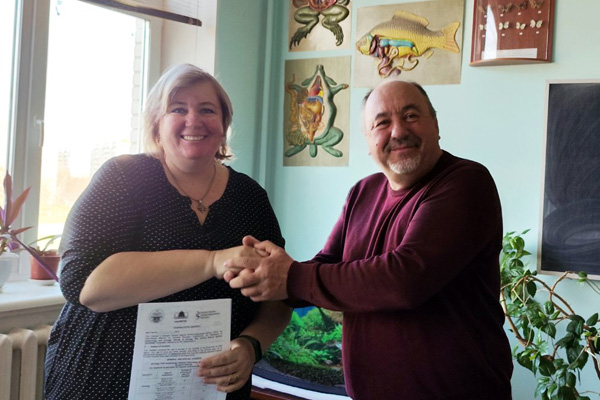
Professor Nataliia Hrynyevych and Professor Oleksandr Melnychenko of the Department of Ichthyology and Zoology at Bila Tserkva National Agrarian University are happy about the fruitful cooperation.
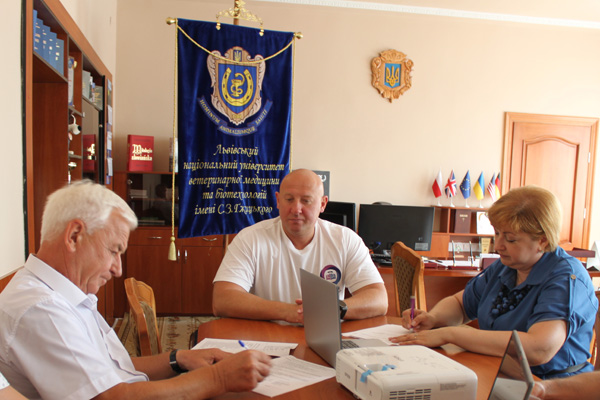
Head of the Department of Pharmacology and Toxicology Vasyl Hunchak (left) and Head of the Department of Normal and Pathological Physiology Iryna Kovalchuk (right) are signing the respecting agreements.
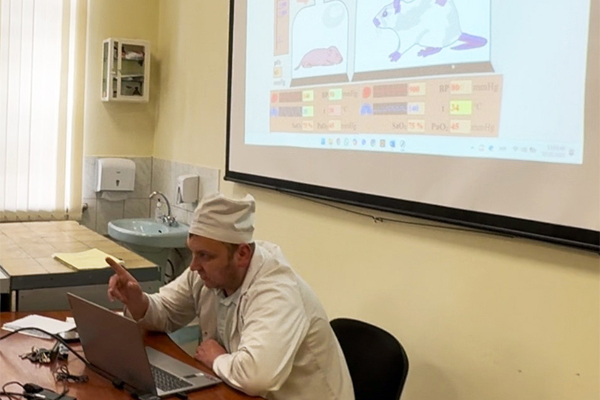
At the Department of Normal and Pathological Physiology, the computer programme ‘Virtual Pathophysiology’ funded by Doctors Against Animal Experiments is now used instead of using and killing animals in experiments.
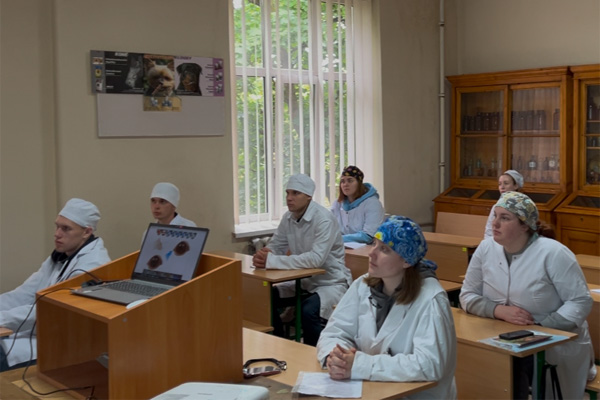
Don't have to kill animals anymore: Students at L'viv University of Veterinary Medicine.
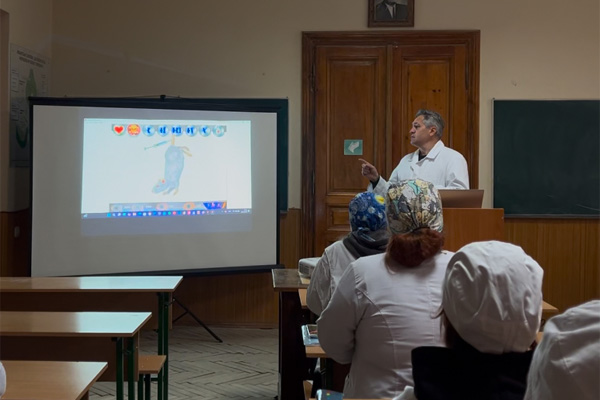
Pharmacology and toxicology are now taught at L'viv University of Veterinary Medicine with the help of computer programs, instead of experimenting on animals and killing them.
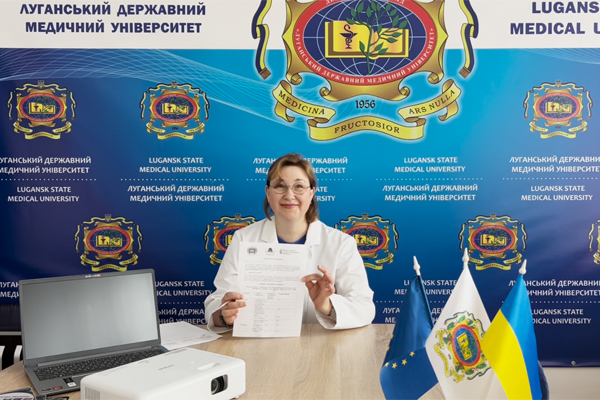
Dr Olena Skriabina, Head of the Department of Anatomy and Physiology of Luhansk State Medical University in Rivne with the signed agreement.
Further Information
Four langauge project website www.ukraine-projekt.de
Overview over our Eastern Europe Project >>
Animal experimentation in higher education and animal-free teaching methodsn >>
